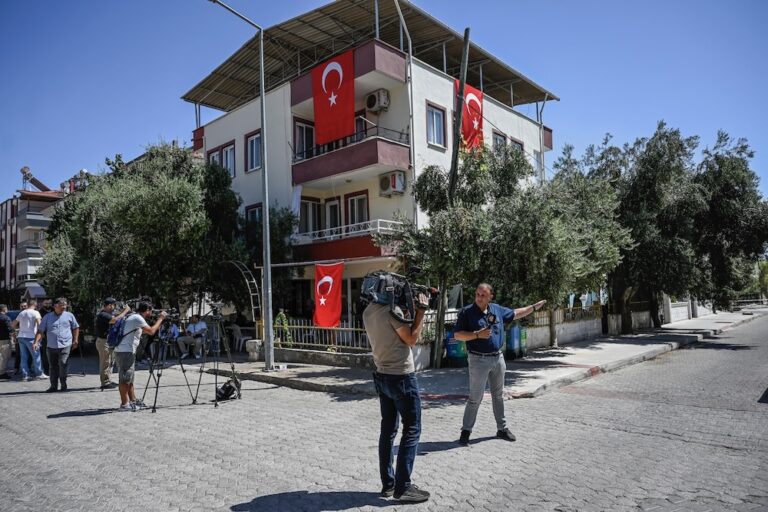"Making journalists targets via the use of pro-government media is an unacceptable move that puts lives at great risk, especially given the history of physical attacks on several Turkish journalists living in exile" - CPJ
This statement was originally published on cpj.org on 24 October 2022.
Turkish authorities and their allies at pro-government media outlets should take steps not to expose the physical locations of exiled journalists, which puts them at great risk, the Committee to Protect Journalists said Monday.
The leading pro-government Turkish daily newspaper Sabah revealed the locations of at least three exiled Turkish journalists living abroad in separate stories in September and October that portrayed them as criminals on the run, according to a CPJ review. All three journalists are wanted by Turkish authorities on terrorism-related charges, such as ties to the Fethullah Gülen religious movement, a former ally of Turkey’s leading Justice and Development Party (AKP) that the government now accuses of plotting the 2016 coup attempt.
“The publishing of the physical locations of Turkish journalists in exile by pro-government media is an unethical and irresponsible act that could lead to serious harm,” said Gulnoza Said, CPJ’s Europe and Central Asia program coordinator. “Making journalists targets via the use of pro-government media is an unacceptable move that puts lives at great risk, especially given the history of physical attacks on several Turkish journalists living in exile.”
Sabah published a critical story about exiled Turkish journalist Cevheri Güven in late September, which did not feature the street address of his apartment in Germany but mentioned the city and area where the building is located. In the story, Güven was accused of making propaganda videos to criticize the government and it featured photos of the building alongside photos of Güven, taken near his home. Freelance online journalist Güven frequently shares content on Turkey’s political agenda via social media to his 546,000 followers on YouTube and more than 387,000 followers on Twitter. Turkish authorities asked their German counterparts this month to return Güven to Turkey for prosecution.
In another critical story published in early October, Sabah revealed the street address of exiled Turkish journalist Abdullah Bozkurt, who is living in Sweden. The article accused Bozkurt of being the “planner” of the 2016 assassination in Ankara of Andrey Karlov, the Russian ambassador to Turkey, and claimed the journalist is fleeing from Russian intelligence. The story featured details about where Bozkurt lives and shops alongside photos of him taken in the street. Bozkurt said he has never been a suspect in the assassination case, which ended in September 2021. Bozkurt, executive director of Sweden-based news website Nordic Monitor, was physically attacked in Sweden in September 2020.
Last week, Sabah published another critical story that featured the street address of exiled Turkish journalist Bülent Keneş, former chief editor of the shuttered English-language Turkish daily newspaper Today’s Zaman, which featured photos of him in the street and details about where “he frequently shops.” The Sabah story accused Keneş of being a coup plotter and added that he lives a “life of luxury” in Sweden. Keneş denied any involvement in the 2016 coup attempt and living lavishly in Sweden.
These stories also were featured in other prominent pro-government media outlets, such as A Haber and the English-language version of the daily Sabah, according to CPJ’s review.
On July 7, 2021, Erk Acarer, an exiled Turkish journalist who is a columnist for the Turkish leftist daily BirGün, was attacked outside his home in Berlin by three assailants.
CPJ sent an email to Sabah for comment but didn’t receive any reply.



